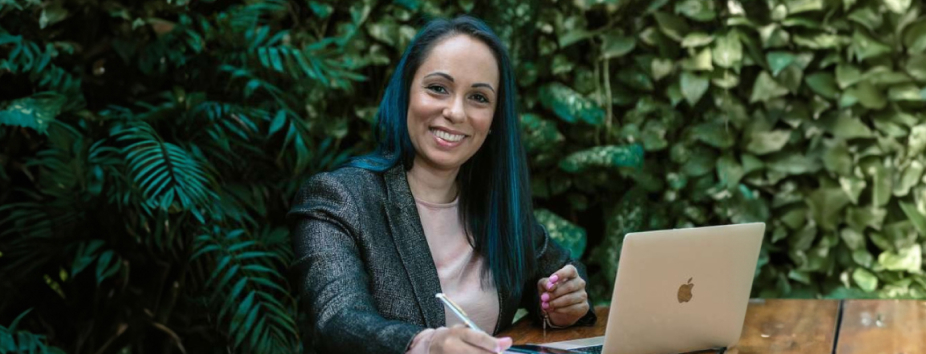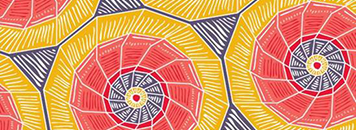Mob Pod: Cara Peek - Cultural Intelligence Project


0.00
LG: Hello everyone, I'm Lisa Gissing from Westpac and today we're speaking with Cara Peek, chair and founder of Saltwater Country and co-founder at the Cultural Intelligence Project. Cara was awarded the national Agrifutures Rural Women's Award in October 2021. A warm welcome to your Cara and congratulations on your award.
CP: Thank you, thank you for having me.
0.30
LG: Now, before we begin, I would like to acknowledge the Traditional Owners of the various lands in which we all meet and pay my respects to elders past, present and emerging. I also acknowledge and pay respects to those here today who identify as being Aboriginal and Torres Strait Islander and recognise the diversity of Indigenous peoples, countries, and culture in Australia.
As Australia’s first bank we acknowledge our role in supporting an inclusive and diverse nation where all of our cultural backgrounds are recognised and respected.
1.05
LG: Cara, let's start today with your story and the purpose behind the Cultural Intelligence programme of which Saltwater Country is, I understand just one of seven platforms within the Cultural Intelligence Project.
1.20
CP: So, thanks for that. The Cultural Intelligence Project is established or was established by my business partner and sister Adele and I to increase the cultural intelligence of our nation. To put a First Nations lens on decision making and design.
1.40
CP: As well as to enable people to unpack their own cultural bias in their decisions, how they react to things and how they design solutions for First Peoples if they are engaging with us or you know Australia at large. And keeping in mind that First Peoples of Australia are interconnected into everything that happens on our lands.
2.10
CP: Whether it be, you know, the banking system or home ownership or actual culturally based things like access to Country and cultural knowledge. So, what we do is open doors and open mindsets essentially. And that's why we created the Cultural Intelligence Project because we saw a marked gap in the ability for people to check their bias, and actually have a means by which those teachings can meet them where they're at in their journey, and then go along on the journey from that point with them
2.45
CP: So, the seven different platforms are designed exactly for that reason. We are multidisciplinary. But, we find that some of our stakeholders you know, they would prefer to engage perhaps through a learning platform or face to face training or in-house advisory or live events. So, for us we designed a way that we can connect with all different people for the same underlying purpose.
3.15
LG: And your story as an individual. We’d love to hear your story.
CP: Where to begin is the question. My story I suppose from a cultural background is that I'm a Yawuru/Bunuba person from Broome and Fitzroy Crossing and then also I have Irish and Chinese family connections as well. So, the quintessential multicultural person in Australia but also with long you know, since time immemorial ties to this Country of ours.
3.50
CP: Now, with my personal journey I am a solicitor by profession. I have a Law degree and a Psychology degree. I have worked in the States, Canada across Australia. And I have been, you know obviously I've been a lawyer, I’ve worked as a Federal Court Associate, a Judge’s Associate and a Research Associate.
4.10
CP: I've worked in multiple industries from private, corporate, industry, non-profit and Government. And on that journey, I have essentially found my way to where I am now with the skillsets and mindsets to assist people. I come from a very large family as well so I suppose you could say I'm used to navigating people, opinions, communications and engagement methodology is relevant to how it can help to achieve a mutually beneficial outcome.
4.45
LG: What have been some of your most memorable teachable moments in business or just in general life?
CP: I suppose one of the teachable moments for me is not everybody cares as much about something that as you might. And so, it is about finding the touchpoint or the pain point of an individual or an organisation and how that can connect with what you're trying to achieve. And then working out a way forward in that.
5.15
CP: I have also been very engaged in working through problems generally, but from a shop floor to boardroom and MD situation. So, one of my key teachable moments is taking the same information and being able to translate or communicate that to apprentices, to lawyers, engineers, community members, and everybody in between. And I would say that that's probably one of the things that I have learnt by existing in multiple worlds, in multiple disciplines.
6.00
LG: And in your opinion why are money skills important for an individual and the community?
CP: Money skills are the way of the world, right. Cash is king. And we operate in a Capitalist society. So, it is important for me that everybody from the most disenfranchised up to, you know the billionaires of this world, understand how money works. Understand the importance of it but also the lack of importance to it. So, money isn't everything but it kind of is at the same time.
6.30
CP: For First Peoples in Australia and also globally, we have been and continue to be to an extent in an economic apartheid, whereby by a lack of knowledge or experience which is by design, we have been left locked out of the industry or locked out of those forms of education for long enough that some of us, not all, but some of us, you know feel they will never get that knowledge.
It’s much the same as if you've got a mathematical brain versus, you know, a literary brain. A lot of people that are great at reading and different things look at a budget and have a heart attack.
7.10
CP: So, it's important to raise those skills from school age, from preschool age even, and to double down on those that have missed those stages post school or even into mature adulthood to make sure that they understand the game. So, I was talking to a financial advisor the other day who happens to be training his 14-year-old son in share trading. So why is that not something that is available to everybody to unlock the secrets of the economy?
And to enable people to be financially free and financially safe
7.50
CP: And then it's from that you know that other things can flow, other opportunities and then they can be well informed and make prior and informed decisions about what their financial life and the rest, how the rest of their life connects to that.
LG: NAIDOC week. The theme this year is Get Up Stand Up. What does NAIDOC week mean to you and how will you be celebrating this week, this year?
8.15
CP: I work every week, so celebration is through basically the delivery and the achievement of the work that we're doing. I always try and spend time irrespective of whether it's NAIDOC week with the people that matter to me. But I think NAIDOC week for me and particularly this year’s theme is literally that. It is giving up some privilege for those non-Indigenous people and it's putting some skin in the game.
8.40
CP: So, whether that means that you go and meet your Traditional Owners on the land in which you reside, or you donate to Indigenous organisations or you make a conscious decision to buy from Indigenous businesses. And look at how you can support the black economy. So, putting skin in the game and getting involved is key for me. And I would, you know, encourage everybody to not just talk about it, but do it.
9.10
LG: And finally, how do people find out more about your organisation?
CP: So, for the Cultural Intelligence Project is a good central point to learn about the different platforms and you just go to the culturalintelligenceproject.com. And of course, we're on different social platforms like Instagram, LinkedIn, and Facebook. And then also you can find information about different types of things that we do, how that might connect with what you're interested in or even perhaps what your deliverables might be at work.
9.40
CP: And how we can assist with that and increase knowledge there. Or you can go to a separate website called the saltwatercountry.com.au. We're still an unfunded, largely volunteer reliant organisation despite the multiple awards that we have won and so you can donate your time, your skills, or if you have the means donate some money as well to help us achieve our goals.
LG: Today we've been speaking with Cara Peek, chair and founder of Saltwater Country and co-founder at the Cultural Intelligence Project. Thank you very much Cara.
CP: Thanks for having me.
10.18

Westpac acknowledges the First Peoples of Australia and recognises their ongoing role as Traditional Owners of the land and waters of this country. We acknowledge Westpac’s Aboriginal and Torres Strait Islander employees, partners, and stakeholders, and pay our respects to their Elders, both past and present.
The choices and decisions made by Cara Peek are her own and this podcast is about her journey and not intended to be advice. This information is general in nature and has been prepared without taking your objectives, needs and overall financial situation into account. For this reason, you should consider the appropriateness for the information to your own circumstances and, if necessary, seek appropriate professional advice.
© Westpac Banking Corporation ABN 33 007 457 141 AFSL and Australian Credit Licence 233714.